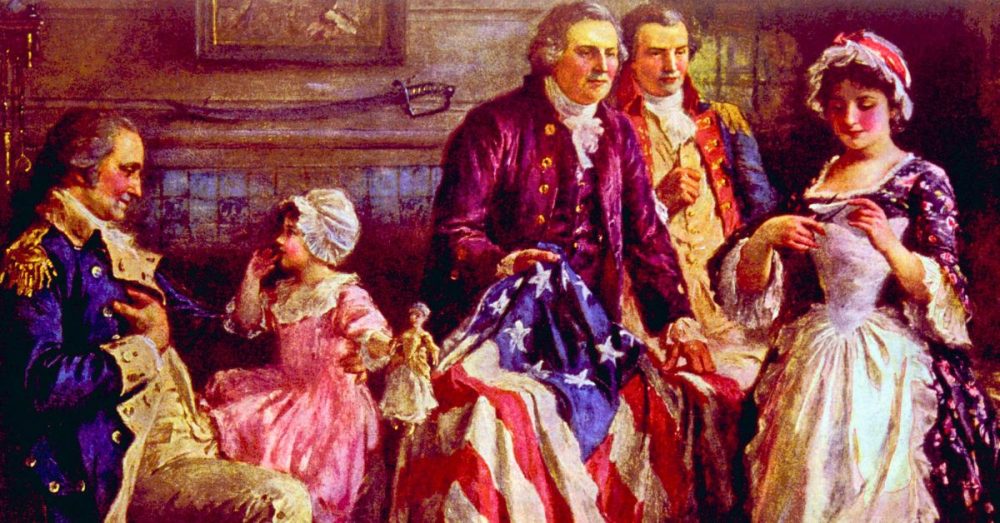The Fourth of July was one of America’s first holidays as a new nation when it finally won its independence from England in 1783.
This important date has continued to remind Americans of the significance of the country’s early struggle for liberty. Even as other holidays related to the Revolution, like Evacuation Day, have faded from the zeitgeist, the Fourth of July has remained a staple on the American calendar.
In some ways, this Fourth of July may feel solemn. America faces many difficulties, from war abroad to economic and social strife at home. Yet, Americans should never forget the small group of patriots who helped build the Republic in 1776.
Despite the overwhelming odds, Americans took on monumental tasks that cumulatively led to the birth of a new nation.
Betsy Ross, often heralded as the seamstress who fashioned the first American flag, symbolizes the contributions of ordinary citizens. Her needle and thread crafted a symbol that would rally the colonies behind the cause for independence. Ross’s work, done quietly and with little recognition at the time, demonstrates how seemingly small acts can profoundly impact history.
Robert Morris was a Philadelphia merchant whose financial acumen and personal sacrifices were crucial to the Revolutionary cause. Known as the “Financier of the Revolution,” Morris used his wealth and connections to secure the funds necessary to keep the Continental Army operational. Without his relentless efforts to manage and obtain resources, the American Revolution would have faltered under the weight of financial strain.
Sometimes, the price of liberty has a literal and physical dollar sign attached to it, and Morris exhausted his personal wealth to build a better nation for future generations.
George Washington and his strategic genius can also not be overlooked. As the Commander-in-Chief of the Continental Army, Washington’s leadership was instrumental in securing American independence. Despite numerous hardships, his ability to inspire and unite his troops was critical to the revolutionary effort. Washington’s perseverance through the harsh winter at Valley Forge and his daring crossing of the Delaware River testify to his unwavering commitment and tactical brilliance.
Washington forewent numerous personal opportunities, including a high-ranking position in the British Army, an American monarchy, and retirement after the war (being later convinced to serve two terms as president) to build a great nation.
What these people have in common is that they were not the Kings or Czars of their day. Instead, they were patriots with a vision of self-governance. They had varying degrees of resources and know-how, yet they used what they had at their disposal to help build a great country. Their images should inspire and serve as blueprints of the work we can do today.
As we celebrate this Fourth of July, let us reflect on the legacies of these patriots and recognize that the spirit of 1776 lives on. In our current era of challenges, each American has the potential to make a difference, using whatever resources they possess to contribute to the nation’s growth and prosperity.
The story of America is a testament to the enduring power of individual effort in shaping a better future.


